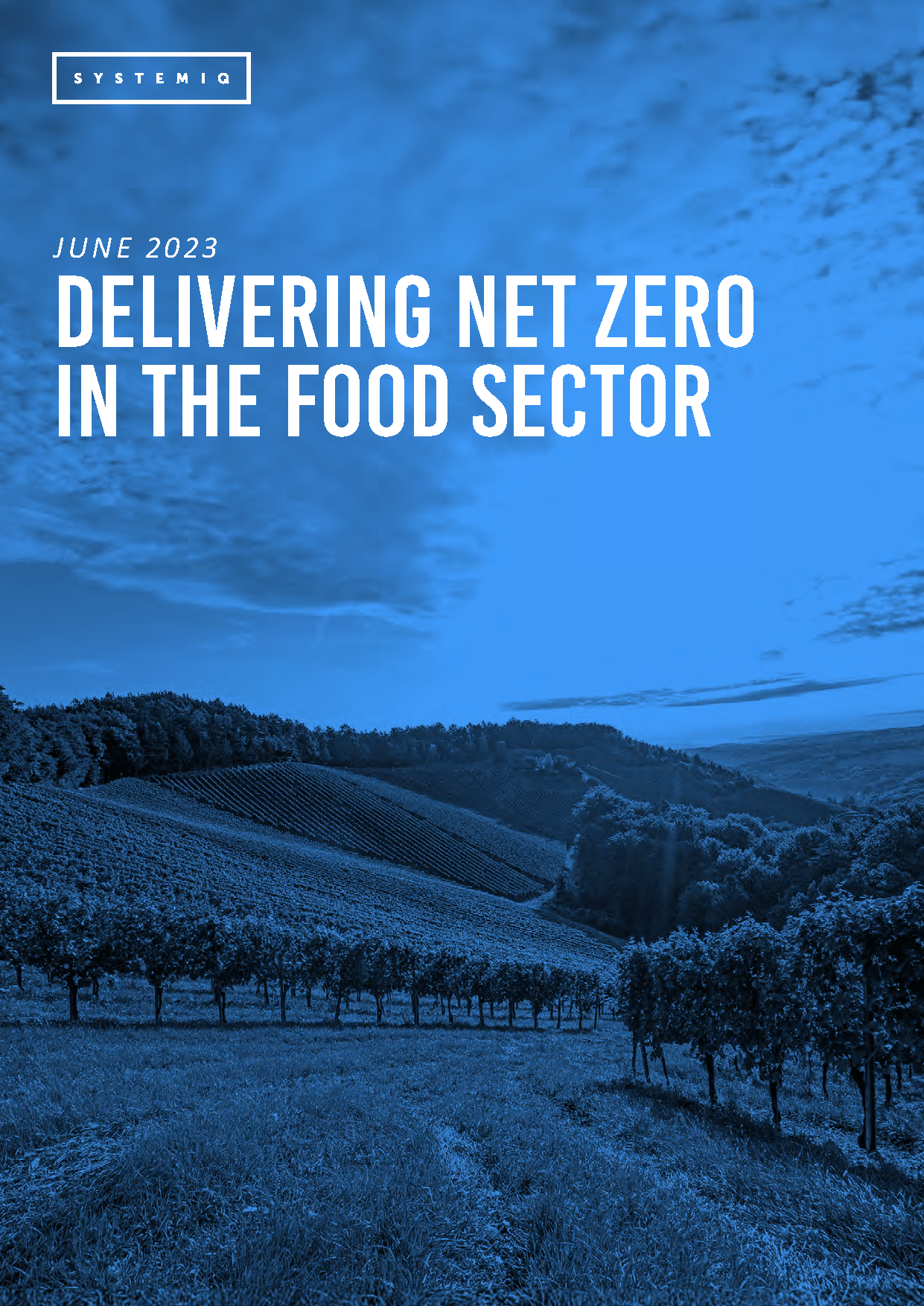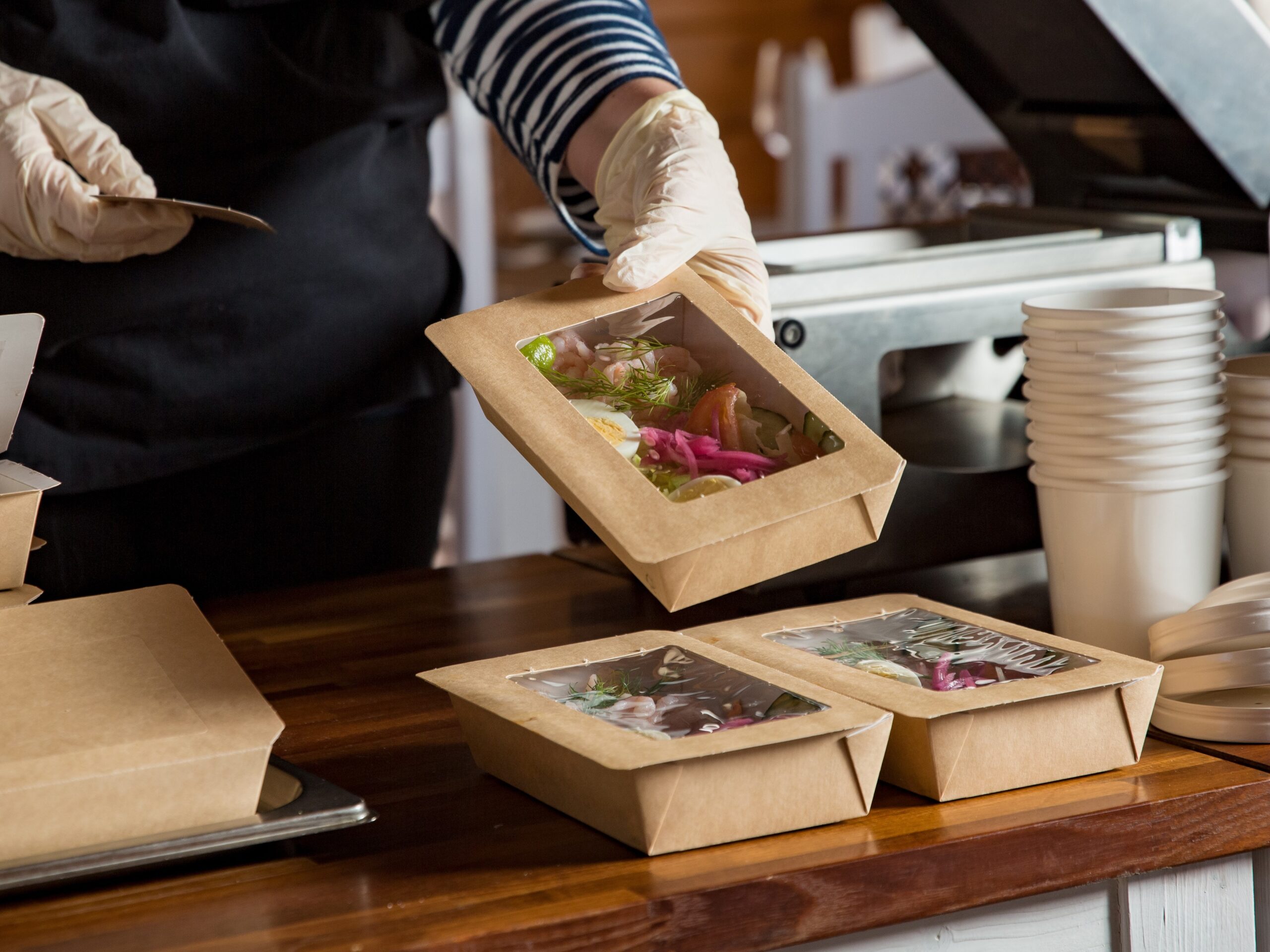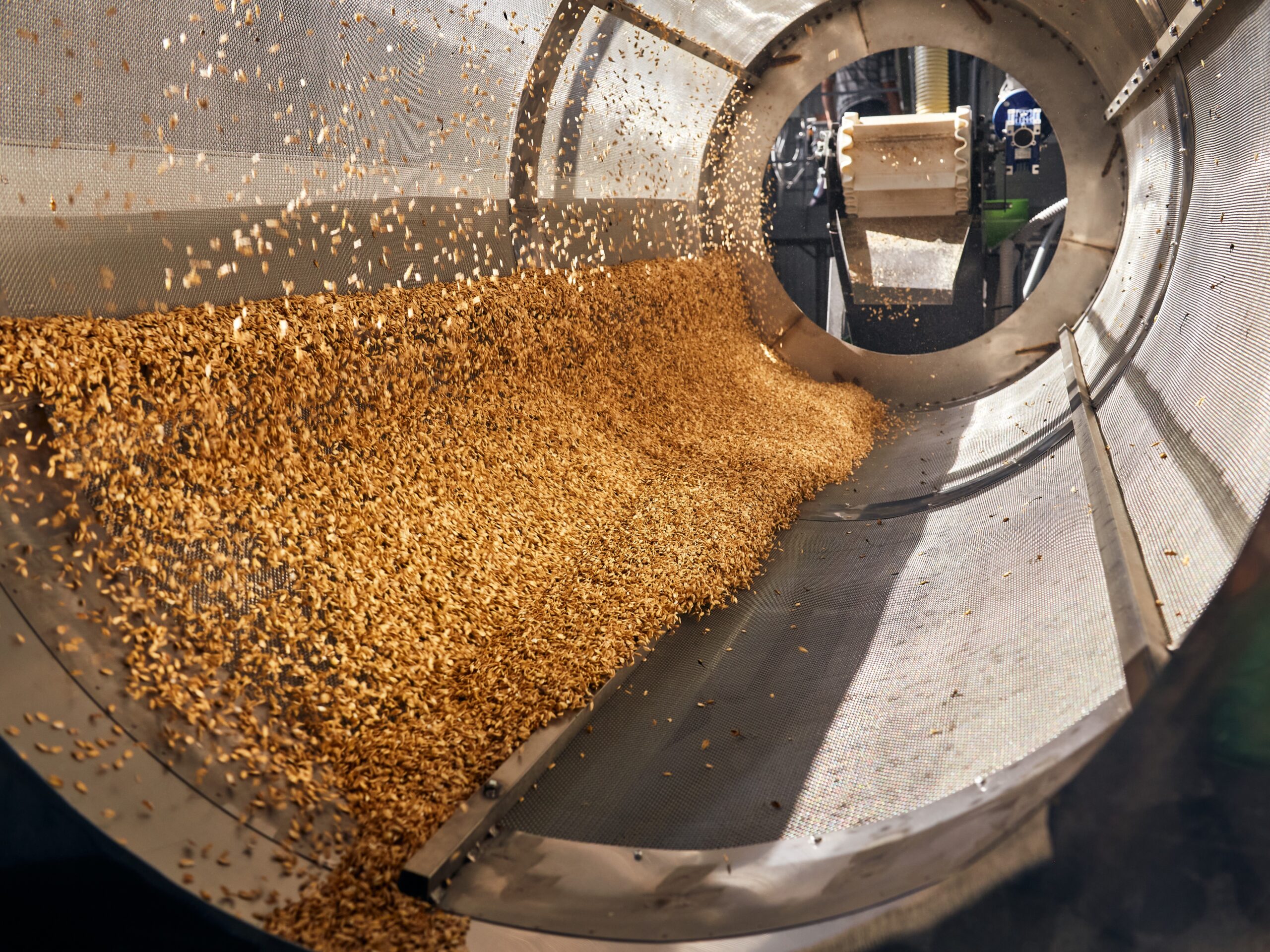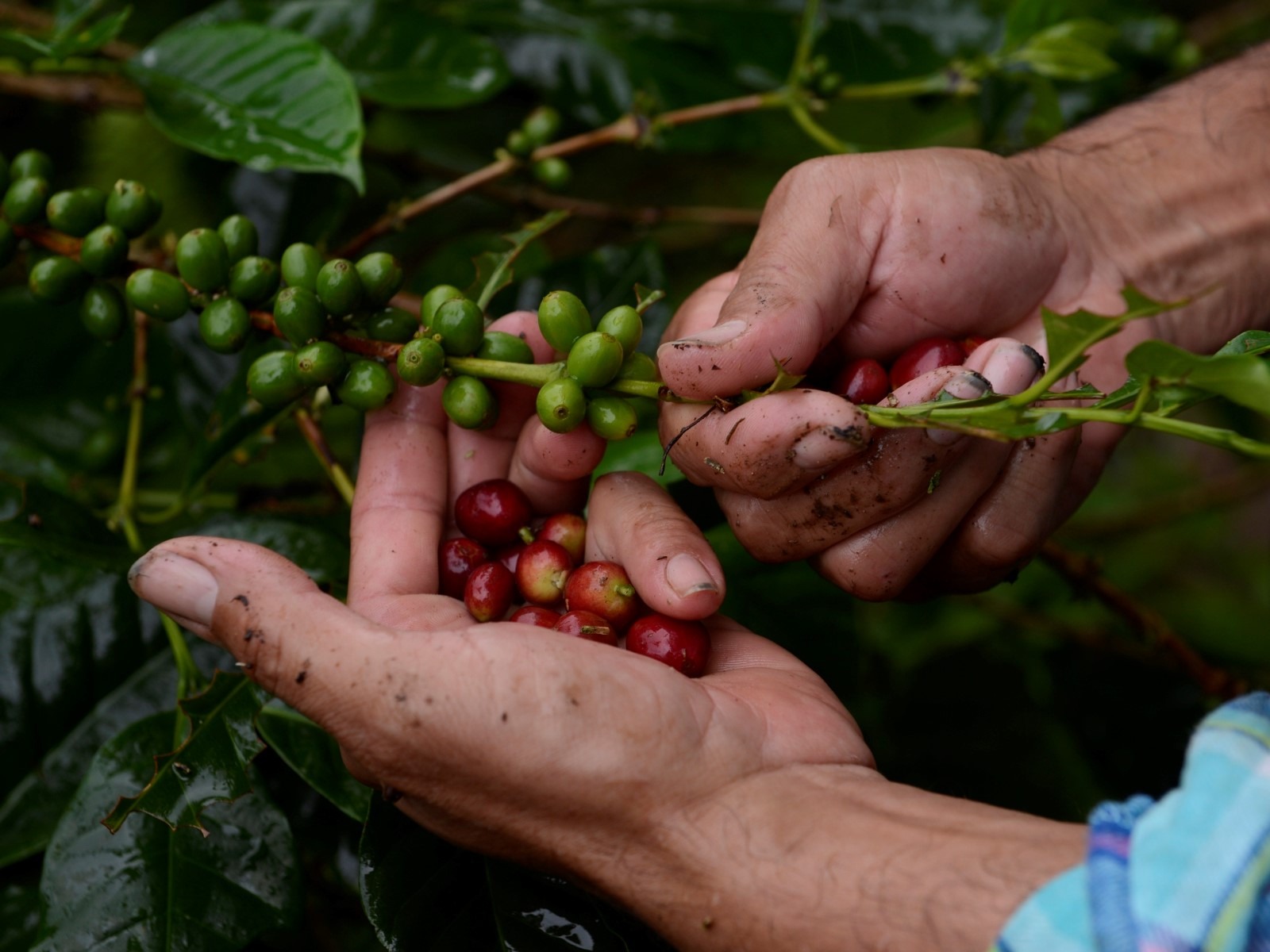Most global food companies have science-based targets to reach net zero. So why are their combined emissions still rising?
We identify the five challenges to designing and implementing corporate net-zero strategies – and how to overcome them. Applying the right combination of technical and nature-based levers – while reformulating current products or by pivoting to lower-emission products – can set companies on a path to a nature-positive and commercially advantageous future.
Setting tough targets is one thing: meeting them is another. The sector is well aware of the problem: food and land use systems generate over 25% of all greenhouse gas (GHG) emissions and have caused 90% of tropical deforestation, with just seven globally traded commodities – palm oil, soy, cattle, wood fibre, cocoa, coffee and rubber – being responsible for most of this encroachment. Food companies also face mounting regulatory pressure, and the prospect of carbon taxation. If all major economies were to impose a $100 tax on every ton of carbon emitted from the food and beverage sector by 2030, the sector would face an annual bill of between $150 billion and $300 billion.
So why do companies struggle?
The scientific basis of global food companies’ climate pledges and targets is not in question. So what makes it so hard for them to get results?
Global food companies generally procure a wide range of ingredients and commodities from numerous different suppliers in many different countries. As a result, they struggle to get a clear view of the source and scale of their Scope 3 emissions – which may account for up to 95% of their footprint. On-farm emissions vary vastly by commodity and geographic region, so a solution to cut them in one place may be less effective in another. Reducing emissions from farms using nature-based solutions is estimated to require an investment of over $100 billion annually.
Shifting to plant-based diets and lower-emission proteins remains a tough sell: alternative products represent only 2% of today’s meat and dairy. Investing in alternative ingredients or fundamental shifts in their portfolios can look like uncertain long-term bets for food companies.
But two key factors are fixable from within the boardroom. CEOs and chief sustainability officers of multinationals need to present a clear business case for their plans if they are to communicate to shareholders why net zero should be a strategic priority. Companies simply don’t get the scale, urgency and difficulty of the work – and tend to give the job of developing a corporate net zero strategy to an under-resourced sustainability department.

“The reality is that only CEOs and their senior teams can give these efforts the priority status they deserve. New partnerships and risk-sharing will be key, within the value chains and beyond. So is advocacy to get governments to equally move faster in putting right policies in place. More than ever, we need courageous leadership.”
Paul Polman, Systemiq Board Member and former CEO of Unilever
"Treat net zero as mission-critical"
Systemiq partner Christine Delivanis picks up on the need for a mindset shift. “Companies should treat net zero as they would any other mission-critical objective. That means evaluating alternative pathways to net zero in hard financial terms, weighing the costs of investments – and any upsides – against the costs of inaction.”
“Seeing alternatives presented in this familiar strategic fashion builds senior managers’ and investors’ understanding of the value at stake and gives them confidence in the cost-effectiveness of the pathway they choose. Support from the top provides the corporate-wide momentum to follow the chosen pathway all the way to net zero.”
A new collaborative approach is also required. Global food companies need to engage closely with many different actors, within their value chains and elsewhere in the sector. Otherwise they will find themselves unable to effect all the big changes in behaviour needed in their particular value chains. Success depends on understanding the benefits of collaboration for not only effecting change but also sharing risk.
Five actions to accelerate progress
What can food companies do to break out of this impasse? We recommend a five-part approach. Click on the summaries below for more details.
Working towards the food systems transition
Systemiq has been working with actors across the global food system since 2016 to catalyse its transition to net zero. That work includes:
Measuring corporate baseline GHG emissions
In cooperation with Altruistiq, Systemiq provides credible measurements of businesses’ environmental impact, including their Scope 1, 2, and 3 emissions. Altruistiq enables businesses to segment, view and analyse GHG emissions data to set SBTi-aligned targets and model decarbonisation scenarios. With a more than 100k emission factor database, Altruistiq builds on granular company data, automating data ingestion and calculations to develop accurate and actionable insights. Linking real-time emissions data to solutions enables effective prioritisation and tracking of progress.
Connecting corporate demand to nature-positive supply
Through Regeneration, our partnership with the development advisory and program implementation firm Palladium, we are connecting food companies with suppliers of regeneratively produced tropical commodities, such as agroforestry coffee and cocoa, and also wild forest commodities, such as forest honey and brazil nuts. The resulting trade benefits local communities and nature while enabling corporate buyers to build resilience in their supply chain, and meet their climate targets.
Financing nature-based solutions
Lombard Odier Investment Managers (LOIM), the asset management arm of Swiss banking group Lombard Odier, have recently partnered with us to launch holistiQ Investment Partners: an investment platform within LOIM to deploy capital for a net-zero and nature-positive economy. holistiQ will have a dedicated pillar on nature-based solutions including focus on the Global South. There will be opportunity for food companies to engage with holistiQ to explore financing solutions to green their tropical commodity supply chains.










